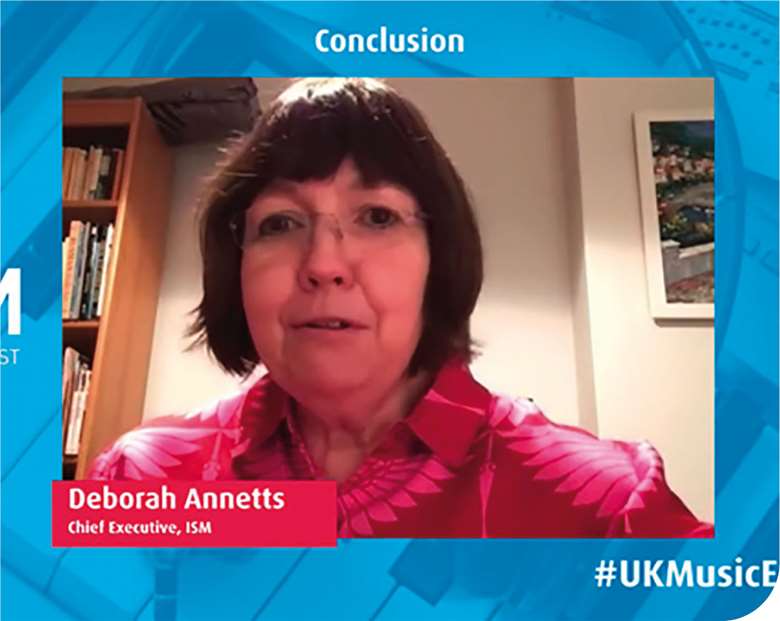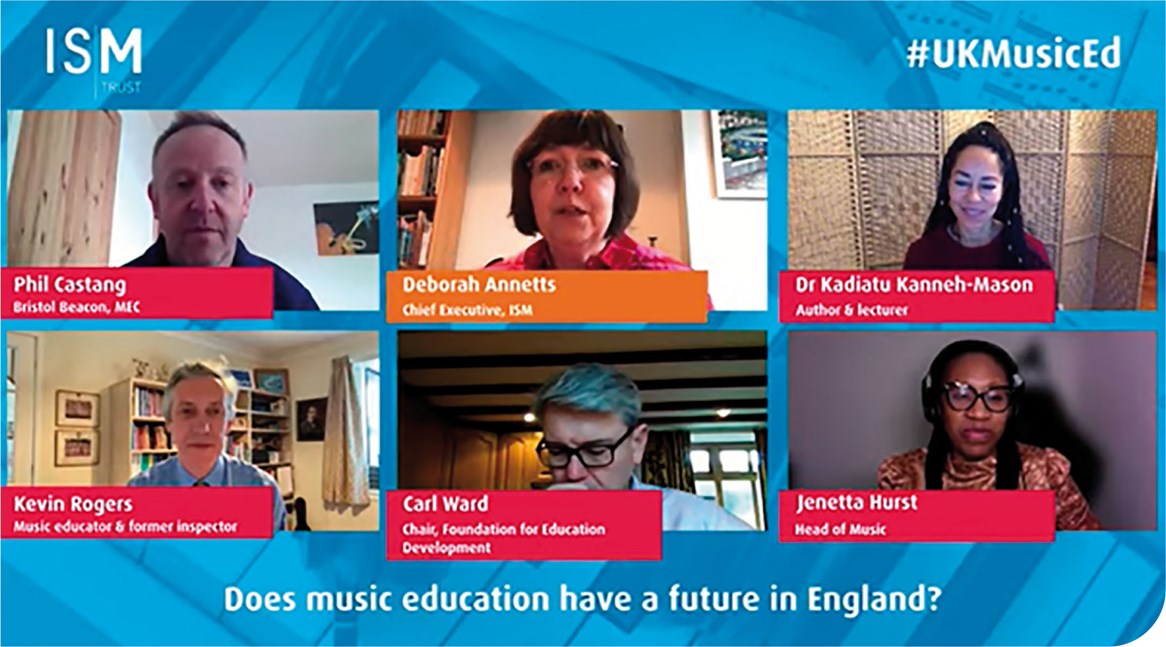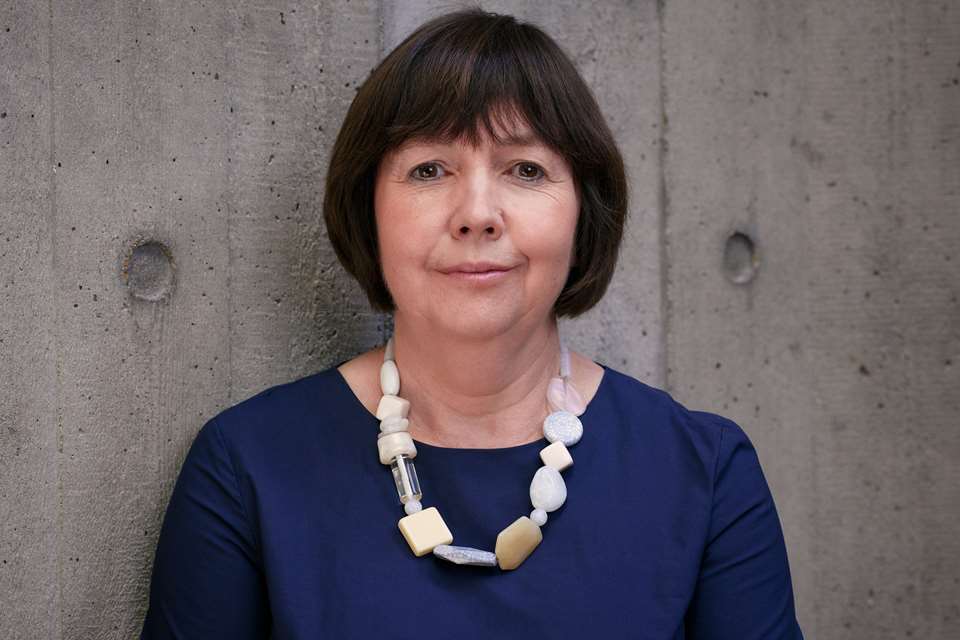ISM Column: Where to next for music education?
Ruth McPherson
Tuesday, February 1, 2022
Music educators from across the UK came together in November 2021 for the ISM Group's third digital conference since the start of the pandemic. Senior business development & events manager Ruth McPherson reflects on the event.

On a wintery Saturday, over 450 music educators made the sensible decision to avoid the wild weather and instead join the ISM Trust for a free online conference. It took place at the end of yet another year of pandemic disruption, and against a backdrop of impassioned debate about what the education system should be seeking to deliver as a new team settles into the Department for Education (DfE). This was a truly national gathering, with speakers and attendees from across the four UK nations meeting to examine the opportunities and challenges that the music education sector faces as we head into a new year.
ISM chief executive Deborah Annetts opened the day with an informative overview of UK music education, covering major issues including the decline of music education in schools and the impact of accountability measures such as the English Baccalaureate (EBacc) and Progress 8. She asked the government to consider the reform of Progress 8 with the introduction of ‘Progress 5’ which would allow pupils more flexibility. She said: ‘Arts education should be supported, not restricted […] We must allow pupils more flexibility in their subject choices to better reflect their interests, talents and future plans.’
This rallying cry was followed by a stimulating keynote speech from Mark Phillips, Ofsted's then national lead for music, who advocated better quality music education, more ‘musical’ teachers, and more supportive school leaders. He implored delegates ‘to take back control of music in the classroom’, saying that ‘simply having music on the timetable is not enough. We need to make that time worthwhile.’
Early years music
There was a recurring theme throughout the day that music teachers were feeling unsupported and undervalued, and this was certainly apparent in the first panel session, which focused on the priorities for early years (EY) music. The expert speakers explained that EY music education in the UK has suffered from a chronic lack of funding and called for ‘real structural change’. Dr Susan Young said, ‘The evidence [for the benefits of EY music education] is there. More than 50 years of it, but it doesn't convince, it doesn't change policy and we need to understand the reasons why. Why is EY music not higher on the agenda?’
Researcher Dr Jessica Pitt emphasised the need for all young children to have access to quality music education from birth, while music teacher Katie Neilson said that children are ‘innately musical’, and that there is a need for better collaboration between specialist and non-specialist EY music practitioners. Animateur Aimee Toshney described the ‘postcode lottery’ of EY music provision across the country, and professor Nate Holder talked about a need to create more diverse and inclusive spaces for children to learn in to enable them to thrive.
Music education in all four nations
We then moved on to focus on the state of music education in England. Carl Ward (chief executive of the City Learning Trust) contextualised the direction of travel for education policy in England. He explained that over the last few year, the DfE has been focusing on the EBacc, Progress 8, and the concept of a knowledge-rich curriculum. With the continued policy on academising, schools no longer have to follow the national curriculum and this – together with the accountability measures and funding issues – he argued, has seen the erosion of music in our maintained schools.

Screenshot of the panel for the session entitled: ‘Does music education have a future in England?’
Jenetta Hurst (head of music at an east London secondary school) spoke powerfully about the challenges of music in schools in this setting. Dr Kadiatu Kanneh-Mason argued that ‘we need to reinstate our respect for creative intelligence’. The new National Plan for Music Education was also a key area of discussion, as the ISM continues to stress the importance of music teachers being able to have input, as they are the ones who will be asked to deliver it. We also heard about the importance of a well-trained workforce. A vibrant music education properly funded by government should be part of every child's education. If this is possible in the devolved nations, then why not in England?
We then looked at recent successes in Scotland and Wales and considered what those in England can learn from them. John Wallace CBE, who had just received the Queen's Medal for Music, said that ‘despite the pandemic, we're in a better place in Scotland than we have been for many years’. He described how Scottish campaigners managed to achieve free instrumental tuition through ‘dogged determination’, plus the added benefit of a first minster who played the saxophone!
Member of the Senedd Rhianon Passmore explained that there has also been positive news in Wales, with a national service for music in development (see p.24), plus a new curriculum for the expressive arts. Music teacher Fiona Gormley said that the picture was not so positive in Northern Ireland, where ‘the sense of musical culture is incredible, but we need our SLTs to remember that music departments are not just there to be wheeled out for concerts – music needs to be valued, and central to learning.’
Music teachers’ rights
The final session of the day came from the ISM's legal team, who gave an informative presentation on the rights of music teachers. They talked about some of the most common concerns ISM members enquire about, including employment status, contracts, discrimination, health and safety, and fair pay, and explained the importance of our recent landmark holiday pay case: Brazel v the Harpur Trust. The common thread throughout their presentation was the increasing casualisation of the music workforce, as working conditions become increasingly precarious within music education.
Deborah Annetts concluded the conference by calling for better terms and conditions for the music education workforce, and by thanking attendees and music teachers everywhere. She said, ‘The ISM has been standing by music teachers since 1882, and we will continue to do so. You are all incredibly important – you are the backbone of music in this country.’
You can watch the conference back at ism.org/conference
The ISM is delighted to announce that we are again running our Teach Meets for those who work in primary schools (including early years), secondary schools and music hubs. These will be our next free music education events and are open to all educators and leaders, no matter what your role is or what stage of your career you are at. To sign up visit: ism.org/seminars.





